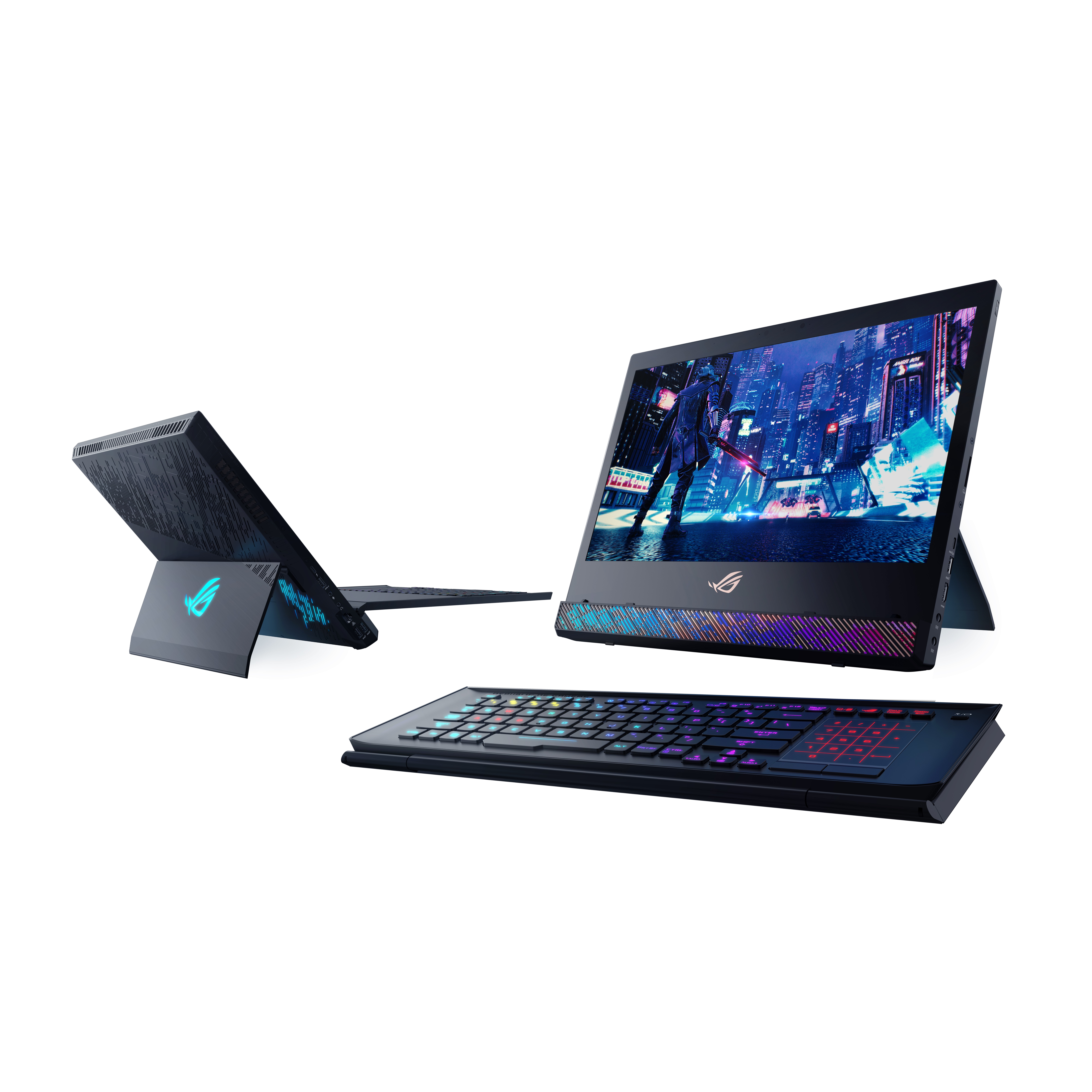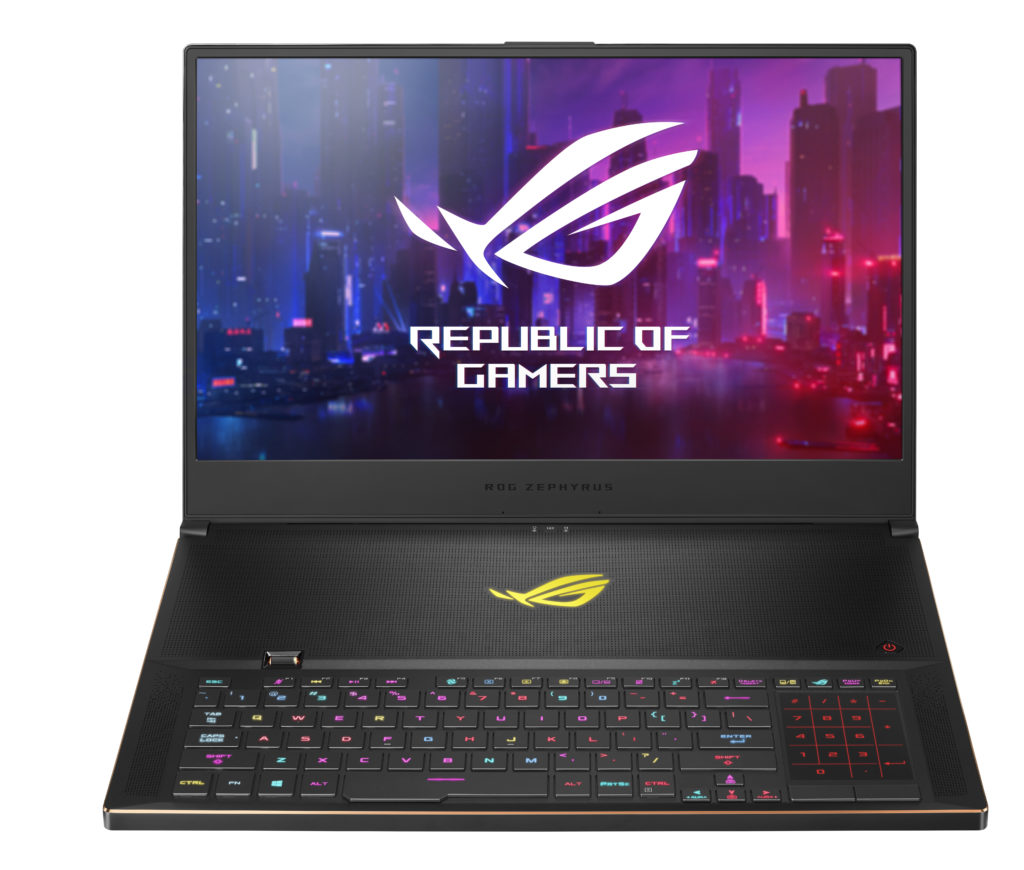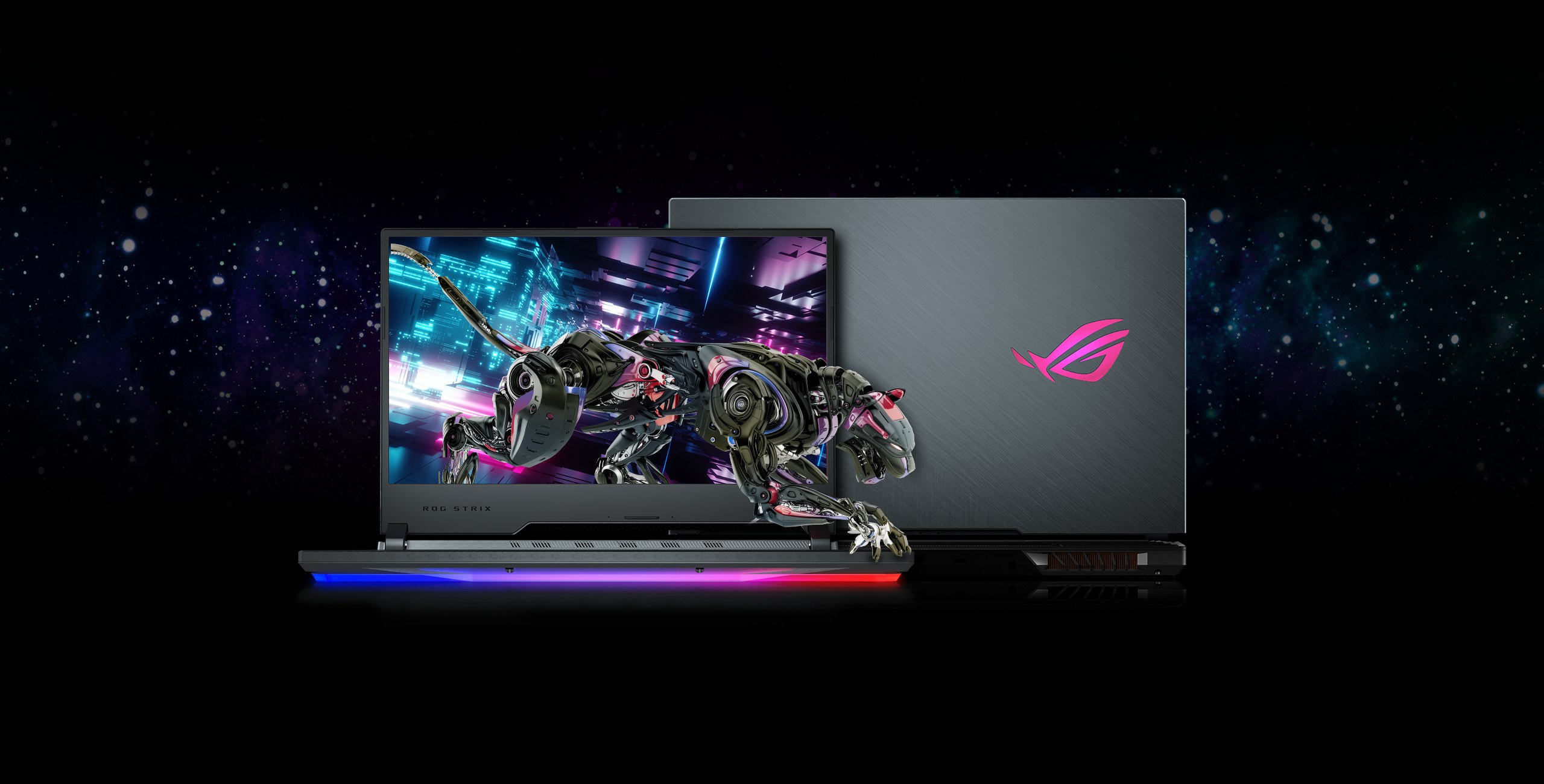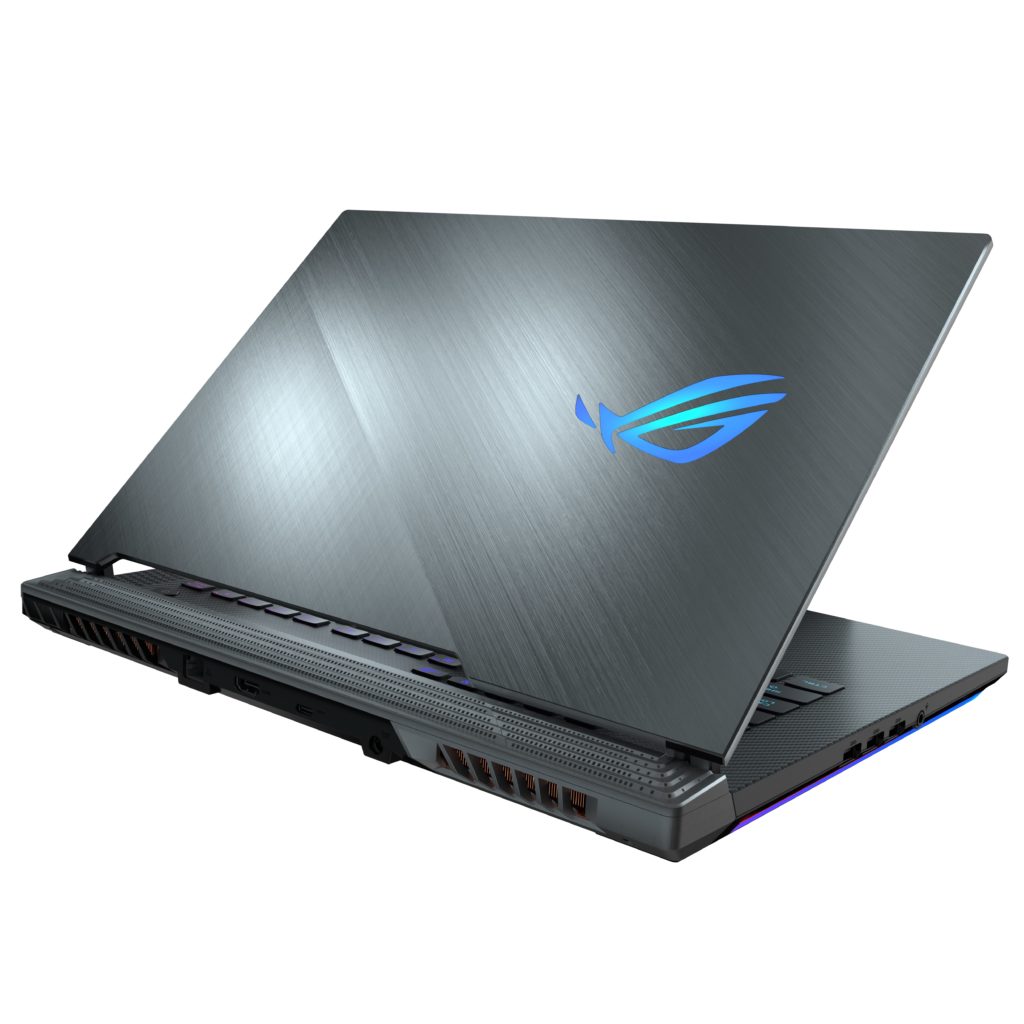ASUS Republic of Gamers (ROG) has announced a top-to-bottom update of its gaming laptop family. The ROG spring 2019 collection mixes all-new models with refreshed systems to deftly balance the performance required by gamers, content creators and power users with the convenience of creature comforts that enhance everyday use.
The lineup includes desktop replacements, ultra-slims and evolved expressions of traditional laptops. There are different levels to match performance requirements and the appetite for more engaging gaming experiences. S-class laptops offer a premium experience fit for professionals, while M-tier designs scale back slightly to find the sweet spot for savvy users. The new G series focuses on core essentials to improve affordability and welcome more gamers into the Republic.
An Intelligent Cooling philosophy guides ROG gaming laptops by combining the right thermal hardware with smart software to ensure optimal performance and acoustics for what’s happening in the moment.
A vision for the future more than two years in the making, the ROG Mothership is more versatile than previous portable desktop replacements.
Instead of lying flat on a desk, it stands tall to give the cooling system unrestricted access to airflow at the back. The keyboard separates and folds for maximum flexibility, giving freedom to position it for the perfect stance, and connects wired or wirelessly. Detaching the keyboard reveals a row of four speakers, creating an effective sound bar right beneath the display.
The improved airflow from the upright design lets ROG shave down the chassis without sacrificing speed. An ultra-fast Full HD panel refreshes at 144Hz with 3ms response to satiate gamers who want to experience true triple-digit FPS for fast-paced play.
While the ROG Mothership represents the future, the G703 takes the present into the next generation. Sticking to a traditional laptop form factor requires beefier cooling and a thicker chassis to achieve the same performance as its deep-breathing sibling. The larger heatsinks and fans are so effective that the G703 can keep up despite having much less room to breathe.
Despite occupying a chassis just 0.7 inches thin, the new Zephyrus S GX701 has an expansive 17.3-inch display that feels larger than life. The slim body and super-narrow bezels make this the most compact 17-inch gaming laptop ever. With a 144Hz refresh rate and 3ms grey-to-grey response time, the screen doesn’t skimp on speed, and neither does the GPU. It’s available with up to GeForce RTX 2080 graphics pushed to 1230MHz at 100W with ROG Boost, which surpasses the specs of typical ultra-slims.
Thanks to PANTONE Validation, it’s also a good fit for creative work. Each screen is calibrated at the factory to guarantee the color accuracy required for certification. ROG’s unique GPU switch further strengthens the GX701’s professional credentials by toggling between G-Sync mode for a better gaming experience and Optimus mode for longer battery life, while a bigger 76Wh battery further extends run times.
A special version of the Zephyrus S GX701 is also available with an HDR panel that boasts more than a billion colors. It has higher brightness, better contrast and localized dimming across 15 backlight zones. HDR only works in Optimus mode.
Putting high-end gaming components into an ultra-slim laptop is exceedingly difficult, especially when targeting a thinner chassis than ever before, but the Zephyrus S GX531 delivers with a remarkably compact body. The exterior measures nearly 0.6 inches thin and leverages a 15.6-inch display with super-narrow bezels to squeeze into a smaller footprint.
While the Zephyrus S GX701 and GX531 have a forward keyboard position that leaves more room for cooling and reduces skin temperatures where hands normally rest, the all-new GX502 adopts a more traditional layout that works better in cramped quarters and on a lap. The esports-grade display makes fast-paced shooters silky smooth and crystal clear, while factory calibration with PANTONE Validation guarantees accurate colors for content creators. Despite the compact chassis, there’s room inside for dual M.2 SSDs that can be configured in a RAID 0 array that maximizes performance.
Features and technologies from the S-class laptops trickle down to the more accessible Zephyrus M GU502, which strikes a balance between power and portability. Like the GX502, it has 144Hz and 240Hz display options with 3ms response times and PANTONE-validated colors. Type-C charging support, along with NVIDIA Optimus technology, helps the laptop last longer when working away from home base. In internal testing, the 76Wh battery delivered more than five hours of run time on a single charge.
With up to GeForce RTX 2060 graphics, there’s enough graphics power to push triple-digit frame rates in popular games. The chip doesn’t require AAS to stay cool; even without it, the thermal module’s forceful fans and quad heatsinks are effective enough to clock the GPU up to 1435MHz at 90W with ROG Boost.
Although it lacks an expanding vent, the chassis is nearly identical to that of the GX502. The rest of the specs match the Zephyrus S nearly step for step with ESS Sabre audio, support for dual NVMe SSDs in RAID, and a complete connectivity payload that includes dual display outputs, plus enough USB ports to connect a mouse, gamepad and external storage.
Students and freelancers just starting their careers have even less to spend, but they’re among those who benefit most from ultra-slim gaming devices at affordable prices, like the Zephyrus G GA502, which combines GeForce graphics with a Ryzen CPU.
Uniting NVIDIA and AMD processors is a favorite tactic of desktop gaming enthusiasts to maximize impact per dollar. In the GA502, the GeForce GTX 1660 Ti GPU is clocked up to 1335MHz at 60W with ROG Boost. It delivers solid frame rates with reliable smoothness, reaching into high-refresh territory on the optional 120Hz display. Added to that is the Ryzen 7 mobile APU with quad cores and eight threads to blaze through everyday work. The power-efficient processor enables battery life up to seven hours, giving more freedom to roam.
The latest Strix series represents the evolution of a more traditional laptop form factor that’s portable enough to carry around all day but not slim enough to encroach on Zephyrus territory. Available in 15.6-inch G531 and 17.3-inch G731 sizes with super-narrow bezels that make the footprints more compact, these mid-sized models are available in SCAR III and Hero III versions optimized for esports dominance, along with affordable Strix G configurations that focus on core gaming features.
But it’s the Strix series’ design that might catch your eye, thanks to inspiration from our collaboration with BMW Designworks Group. Raised ridges race across the laptop’s spine and down the deck. Scissor-door hinges sit slightly forward to make more room for the extra ventilation in the 3D Flow Zone at the back, and an asymmetrical cut-out under the display avoids interfering with surrounding airflow. The hinges disappear into the laptop’s frame when closed, reducing exposure that can lead to cracking.
ROG worked with professional esports teams and top tournaments to gather insight on the needs of professional players who increasingly demand 240Hz displays. The higher refresh rate provides a competitive edge in high-level play, especially with fast-paced FPS games. ROG Boost takes the GPU up to 1440MHz at 115W, which helps sustain the high FPS needed to saturate the screen. CPU options scale up to the Core i9-9880H, whose eight-core design adds multitasking prowess that can help with gaming and streaming on the same machine, along with more serious work like video editing and 3D rendering.
ROG’s esports contenders each carry distinctive designs. The Strix SCAR III reflects its shooter inspiration with a gunmetal grey motif and carbon wave pattern on the interior, while the Hero III wears midnight black punctuated by stealthy cyber text slashed across the palm rest. Both designs split contrasting surfaces on metal lids that add a more premium feel.
The collaboration with BMW Designworks Group on the ROG Face Off concept also inspired the transformative nature of the new ROG Keystone, which docks neatly with the chassis and offers a more personalized link to the laptop. This NFC-enabled device acts like a physical key; docking one can change system lighting and other settings based on Armoury Crate profiles, and grant access to a secret Shadow Drive that hides and encrypts important files.
Finally, the Strix G concentrates on vital features and components that define the gaming experience, offering excellent value in a versatile laptop that can handle work and school too. Streamers who are starting out on a single machine will appreciate an upgraded video encoder that enables smooth, high-quality capture. With up to a Core i7-9750H CPU packing six cores and 12 threads, the Strix G can be configured to punch above its price tag.
The post ASUS announces a lineup of new and refreshed ROG gaming laptops appeared first on Windows Blog.
Source: Windows Blog
—



